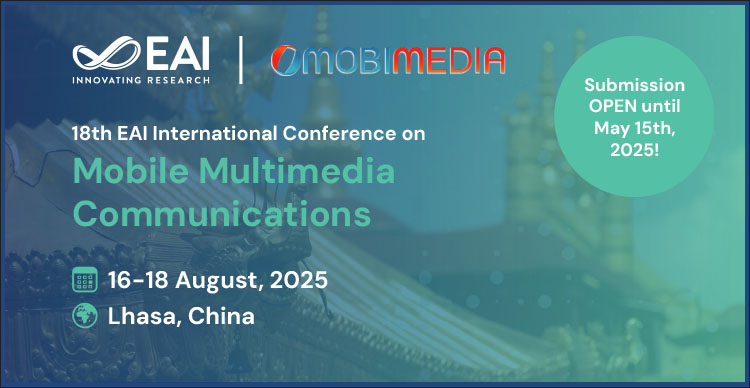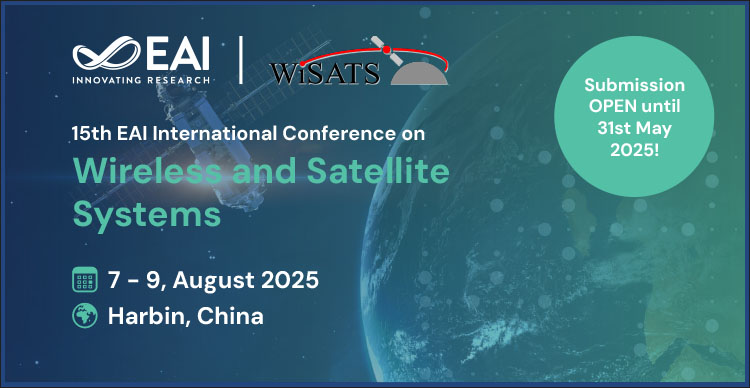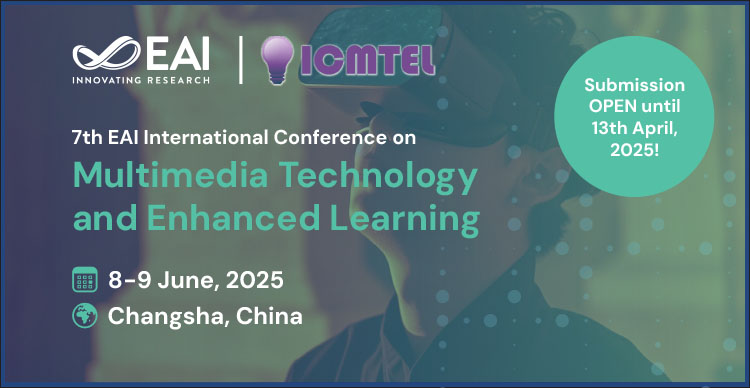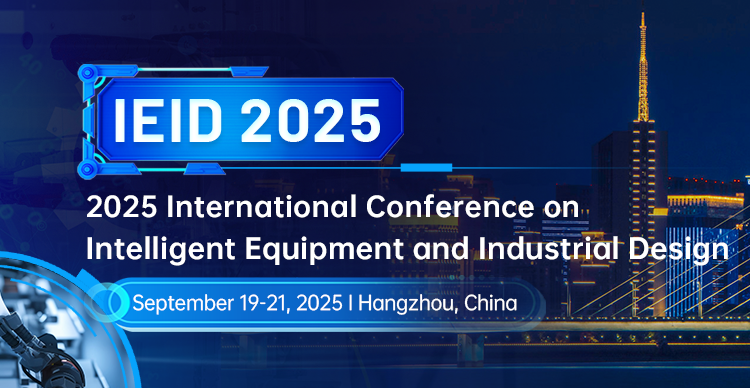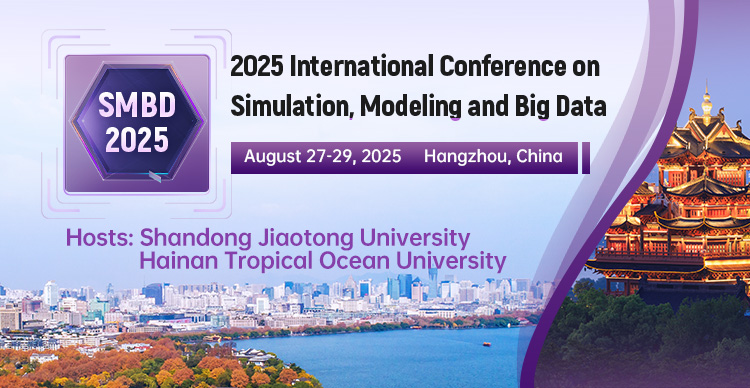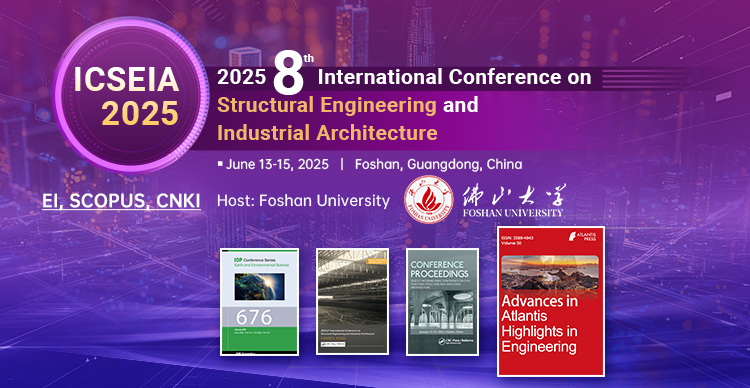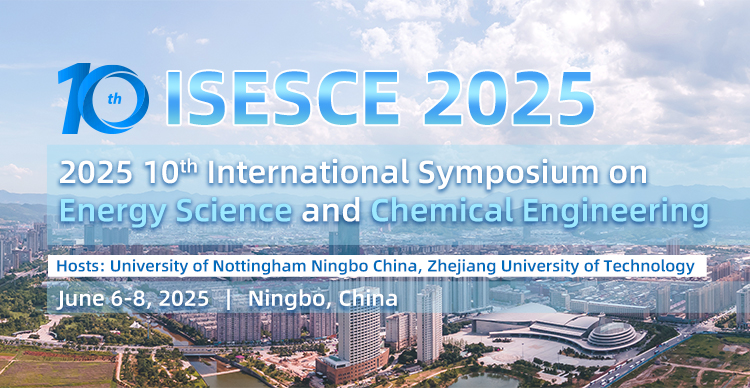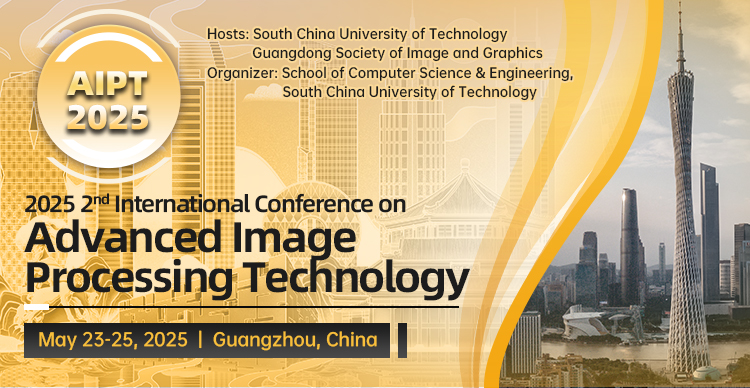The 3rd International Conference on Mechanical Engineering and Intelligent Manufacturing--Bionic Mechanics and Artificial Intelligence (MEIM--BMAI 2022)
June 10th-12th Nanchang, China/Virtual

Website URL: www.ic-bmai.org
Start Date / End Date: June 10th-12th, 2022
Location: Nanchang, China/Virtual
Submission Deadline: June 1st
1. About the conference:
The 3rd International Conference on Mechanical Engineering and Intelligent Manufacturing (MEIM 2022) is scheduled to be held in Nanchang, China from June 10th to 12th, 2022. In the spirit of maximizing academic exchange and offering opportunities to share the latest development in the trending neighboring fields of Bionic Mechanics and AI, the parallel conference the 3rd International Conference on Mechanical Engineering and Intelligent Manufacturing--Bionic Mechanics and Artificial Intelligence (MEIM--BMAI 2022) centered around Bionic Mechanics and AI is set up as an international platform for experts, scholars and students from universities, research centers, scientific institutions and labs both at home and abroad to not only exchange experiences, ideas, and research findings, discuss key challenges in these fields to push forward the development and applications of Bionic Mechanics and AI, but also expand professional connection and network, and serve as a channel for participants to build international partnerships.
We sincerely welcome academians, scholars, researchers, students, business people, and anyone interested to participate in the conference and exchange!
2. Organizations
Organizer:
East China Jiaotong University
Host:
School of Mechanical, Electrical and Vehicle Engineering, East China Jiaotong University
Key Laboratory of Vehicles and Equipment of Ministry of Education, East China Jiaotong University
Guangdong AIS Institute of Information Academic Exchange
Co-hosts:
East China Jiaotong University Intelligent Mechanical and Electrical Equipment Innovation Research Institute
Nanchang Key Laboratory of VR for Rail Vehicle System Training
Jiangxi Mechanical Engineering Discipline Alliance
3. Conference Chairmen:
Prof. Hesheng Liu, East China Jiaotong University
Prof. Minghui Hong, National University of Singapore
Prof. Yinquan Yu, East China Jiaotong University
4. Speakers:
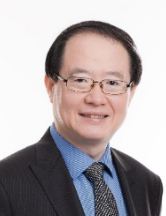
Prof. Zexiang SHEN, Nanyang Technological University, Singapore
Professor Shen was the founding Vice Dean (Research and Graduate), School of Physical and Mathematical Sciences (SPMS), where he helped the School to establish many of the procedures and practices that were forward looking and different from that of NTU at that time. The three disciplines in SPMS, physics, chemistry and mathematics consistently ranked among the very top worldwide. Most of the processes SPMS used for research and graduate studies have since been adopted university-wide by NTU, e.g., the vigorous peer review process for research proposals and the PhD thesis examination process that significantly shortens the examination time while maintaining scientific vigour.
Prof. Shen was the founding Programme Chair (Sustainable Earth), Interdisciplinary Graduate School at NTU. After 6 years in the School Management of SPMS, Prof. Shen was asked to help set up the Interdisciplinary Graduate School (IGS) for the University.
Prof. Shen is also a member of the NTU Research Council and he chairs the Committee for EP5-P, i.e. for proposals in Physic, advisor to the NTU Board of Trustees, member of NTU senate; member of the School Review Committee for Promotion and Tenure (SRCPT) for the School of Materials Science and Engineering, chair of SRCPT for school of Physical and Mathematical Sciences and member of SRCPT for School of Biological Sciences, and School of Materials Science and Engineering, President of Singapore-China Association for the Advancement of Science and Technology; Expert Advisor on Science and Technology, Chinese State Council Overseas Office (国 务 院侨 办专家咨询委员会专家); Senior Fellow of Institute of Advanced Studies, NTU; member of Tan Kah Kee Foundation; member of Tan Kah Kee International Society; Founding and current President of Jilin University Alumni Association (Singapore), Council Member of Institute of Physics Singapore; Council Member of Materials Research Society Singapore; Council Member of International Physics Olympiad; President of Singapore Physics Olympiad.
He has been invited by the Nobel Prize Committee to nominate candidates for Nobel Prize in Physics; he was also invited to nominate candidate for Japan Prize. Prof. Shen has initiated many projects at the National and University level. He instigated the setup of The Photonics Institute at NTU with Prof. Sir David Payne as the Director, as well as the Centre for Disruptive Photonic Technologies. These two institutes have obtained over US$150m external funding. He also started NTU collaborations with Vietnam National University (Hanoi). He initiated the collaboration agreements with Russia Academy of Sciences (RAS) and Moscow State University (MSU). The signing ceremony with RAS was witnessed by the Singapore Prime Minister Lee and Russian Prime Minister Dmitry Medvedev, while that with MUS was witnessed by the Deputy Prime ministers of Singapore and Russia. In his current appointment as Associate Dean of Graduate School, he is in charge of the interdisciplinary graduate education and research at Nanyang Technological University. interdisciplinary research and innovation are the key research drivers for the NTU 2025 Research Plan.
Prof. Yande Liu, East China Jiaotong University, China
Second-level professor, doctoral supervisor, currently the dean of the Intelligent Mechanical and Electrical Equipment Innovation Research Institute of East China Jiaotong University, leading talent of the third batch National "10,000 People Plan", the New Century Million Talents Project National Candidate, outstanding talent of the Ministry of Education, the head of the innovation team in the key areas of the Ministry of Science and Technology, the "most beautiful scientist" of the China Instrumentation Society, and the first of Jiangxi Province Po Yingcai 555 Project "Leading Talent", and outstanding graduate student instructor in Jiangxi Province.
Prof. Liu mainly engages in mechatronics and hydraulic integration technology, intelligent nondestructive testing technology and equipment research; has presided over the national 863 Program, 12 national projects such as the Science and Technology Support Program and the National Self-Science Fund; 10 provincial and ministerial awards such as the first prize of provincial scientific and technological progress. Prof. Liu has published more than 100 PAPERS included in SCI and EI, authorized 21 invention patents, 15 software copyrights, and 10 achievements transformation item.
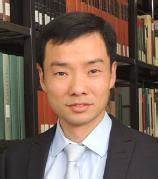
Prof. Yaguo Lei, Xi'an Jiaotong University, China
Prof. Yaguo Lei received his B.E. degree and the Ph.D. degree both in mechanical engineering from Xi’an Jiaotong University, P. R. China, in 2002 and 2007, respectively. He is currently a professor in mechanical engineering of Xi’an Jiaotong University, P. R. China. He worked at the University of Duisburg-Essen, Germany as an Alexander von Humboldt fellow and at the University of Alberta, Canada as a postdoctoral research fellow. He is also a fellow of IET and ISEAM, a senior member of IEEE, a member of ASME, and senior members of CMES, ORSC and CAA, and the associate editor/ the editorial board member of IEEE TIE, MSSP, NC&A, MST, etc. His research interests include health condition monitoring and intelligent maintenance, big-data era intelligent fault diagnostics and prognostics, reliability evaluation and remaining useful life prediction, mechanical signal analysis and processing, and mechanical system dynamic modeling. Prof. Lei has pioneered many signal processing techniques and intelligent models for diagnosing mechanical faults such as gearboxes, bearings, rotor systems etc, with over 80 peer-reviewed papers published on signal processing and fault diagnostics, which have been broadly cited by hundreds of researchers in this field.
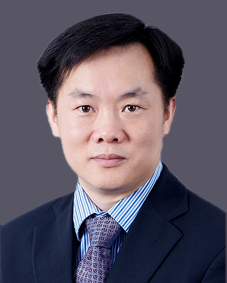
Prof. Tao Ye, Southern University of Science and Technology, China
Professor Ye of the Department of Electronic and Electrical Engineering of Southern University of Science and Technology is a doctoral supervisor, national distinguished expert (national key talent introduction project), adjunct professor of the Department of Electrical and Computer Engineering of Carnegie Mellon University. He graduated from the Department of Electronic Engineering of Tsinghua University in 1993 and received his Ph.D. from Stanford University in 2004. His main research directions are integrated circuits, EDA, brain-like neural circuits, artificial intelligence chips, Internet of Things communication chips and sensor devices. With more than 20 years of experience in the field of integrated circuit design and EDA, especially in the application specific integrated circuit (ASIC) and mix-signal IC (Mix-Signal IC), Prof Ye has a wealth of academic and industrial experience. He was the Technical Director of the Hong Kong Logistics and Supply Chain Management Technology R&D Centre (LSCM), one of the five government R&D centres in Hong Kong, and led a number of Hong Kong Government Innovation and Technology Fund projects as Project Leader and Principal Investigator. He has participated in the design of the world's first miniature low-power RFID tag chip and RFID reader chip, which combines RFID with mobile phone mobile platforms, so that RFID technology can eventually be extended to user terminals, and generate huge market opportunities in the fields of product anti-counterfeiting, authentication and payment. At the same time, Prof Ye also participated in the formulation and implementation of world standards and protocols for Internet of Things technology, and pioneered and developed a variety of key technologies for the Internet of Things. Prof Ye boasts deep experience in collaborating with business industries and the academic realm, having held engineering leaders and consulting positions at Synopsys Inc., Analog Devices Inc., Magma Design Automation Inc., Silicon Architects and various Silicon Valley companies, as well as adjunct professor at the Chinese Academy of Sciences, the University of Hong Kong, the Hong Kong University of Science and Technology, and the Chief Scientist of the Internet of Things Center of the Hong Kong University of Science and Technology.
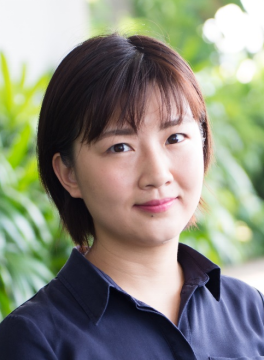
A Prof. Wei Yao, National National University of Singapore, Singapore
Assistant Professor Yao holds a PhD from University of Cambridge, UK. Currently assistant professor, Department of Mechanical Engineering, National University of Singapore, PhD supervisor. Se has long been engaged in the preparation, forming and multifunctional characteristics of advanced structural and functional materials, and has made breakthroughs in the research on the integrated design and manufacture of functional materials-structures based on additive manufacturing in recent years. A Prof. Yao has presided over the Tier 1 Research Project of the Singapore Education Board, the Singapore Science and Technology Board Young Scholars Research Project, the National University of Singapore Basic Research Fund, and the Singapore Science and Technology Board and the United Kingdom Rolls-Royce Cooperation Project. With a good accumulation in the design and manufacture of additive manufacturing for mechanical, electromagnetic and acoustic metamaterials, Prof. Yao is also Editor-in-Chief of Material today Communications and Assistant Editor-in-Chief of Materials & Design. She has published more than 30 high-quality SCI search papers, google scholar H index 15, including engineering and comprehensive top journals Advanced Materials, Acta Materialia, Small, Applied Materials Today, ACS Applied Materials & interfaces, Applied Physics Letters, etc.
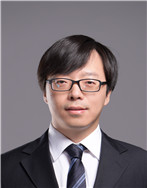
Prof, Yihui Zhang, Tsinghua University, China
Prof Zhang got his Ph.D. in Engineering Mechanics from Tsinghua University, China (6/2011), M.S. in Engineering Mechanics, Tsinghua University, China (6/2008) and B.S. in Engineering Mechanics, Nanjing University of Aeronautics & Astronautics, China (6/2006). His main areas of research is Mechanically-guided 3D assembly; Unusual soft materials; Stretchable and flexible electronics; Mechanics of smart materials and structures. Zhang group’s research bridges the broad areas of solid mechanics, materials science and engineering, electrical engineering and biomedical engineering. His group is dedicated to addressing the grand challenges in the frontiers of science and technologies through creative uses of mechanics principles and cross-fertilization among diverse disciplines, which drives the development of new mechanics theories and computational models of advanced materials and structures, as well as novel designs and fabrication approaches of materials and systems with unprecedented properties.
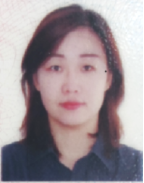
Assistant Researcher, Han Zhang, Institute of Acoustics, Chinese Academy of Sciences
With the overall transformation and upgrading of the international manufacturing industry, especially considering the increasing maturity of additive manufacturing (3D printing) technology and equipment, the theory and methods of metamaterial design have flourished. Acoustic wave/elastic wave metamaterials use microstructure as the basic unit to regulate the excitation, transmission and coupling of waves, artificially obtaining macroscopic characteristics that break through the limitations of natural laws, and realizing arbitrary regulation of wave propagation. The emergence of such "new materials" in basic disciplines and applied research has atrracted great attention. Metamaterial design and fabrication is an advanced multidisciplinary issue. This report mainly introduces the frontier development of metamaterial design and advanced manufacturing in intelligent manufacturing, and the usage of multi-objective optimization algorithm to solve the key problems. Through reverse operation, intelligent algorithms overcome the problems of limited prior knowledge, the multiphysics conditions that restrict each other, and overly complex preparation requirements in traditional methods, pushing forward the technological innovation and subversive innovation of metamaterial design and preparation for different applications, especially the promotion of rapid application of acoustic stealth, seismic protection, super-resolution imaging and detection, and intelligent structures in transportation equipment, structural health monitoring, wearable devices, bionics and medical treatment.
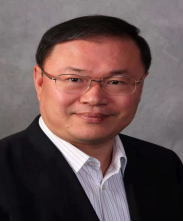
Zong Guisheng Chairman and CEO of Beijing Sandi Technology Co.
Executive Director of Powder Metallurgy Technology Innovation Strategic Alliance, Deputy Director of Expert Committee, Director of 3D Printing Professional Technical Committee, Deputy Director of Group Standard Committee, Deputy Director of Powder Metallurgy Committee of China Materials and Testing Group Standard Committee, Expert Member of National Additive Manufacturing Standardization Technical Committee, Expert Member of China Additive Manufacturing Industry Alliance, Anhui Spring Valley 3D Printing Intelligent Equipment Industry Technology Research Institute President, member of Shenzhen Association of Science and Technology, 2018 Chinese economic news figure. He was the managing director of a joint venture in China with the Stanley Group, a Fortune 500 company, and later promoted to president of the Eastern Hemisphere. He was the president of the U.S.-China Chamber of Commerce in Houston, Texas, U.S.A. He graduated from the University of Texas in 1991 with a Ph.D. in materials science and engineering, and was one of the first international Ph.D.s in additive manufacturing.
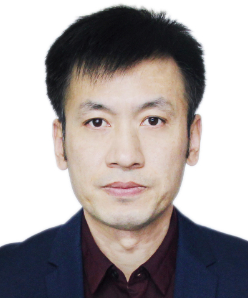
Prof. Bin Liu, Dalian University of Technology, China
Professor, Doctoral Supervisor, Head of Department of Digital Media Technology, School of International Information and Software, Dalian University of Technology; Visiting Professor, Ritsumeikan University, Japan; Director and Technical Leader of Liaoning Key Laboratory of Medical Simulation Technology; Member of 3D Printing Technology Branch, China Medical Biotechnology Association; Vice Chairman of Special Committee of Repair and Reconstruction Surgery and Digital Technology, Liaoning Cell Biology Society; Standing Director of Liaoning Cell Biology. He graduated from the School of Mechanical Engineering, Dalian University of Technology in 2009, and conducted a joint research visit in the Department of Biomedical Engineering, National University of Singapore from 2018 to 2019.
His main research interests are medical image processing and 3D reconstruction, computer-aided preoperative planning and simulation, and computer vision and graphic images. In the field of medical-industrial intersection, he has presided over 3 National Natural Science Foundation of China (NSFC) projects and participated in more than 10 projects at the national key R&D program, NSFC, provincial and ministerial level; published more than 40 papers in international journals as first/corresponding author; authorized 16 national invention patents and more than 40 software copyrights as first completer. He has served as an editorial board member and reviewer of several international journals and top international conferences in the field of medical-industrial crossover. He has long maintained clinical research collaboration with the Shenyang Hospital of China Medical University, Liaoning Cancer Hospital, the First Hospital of Dalian Medical University, the Second Hospital of Dalian Medical University and other tertiary hospitals.
Prof. Shaojian Zhang, Nanchang University, China
Prof. Dr. ZHANG Shaojian is from School of Advanced Manufacturing, Nanchang University, Nanchang, China. He graduated from Harbin Institute of Technology with Bachelor Degree in Mechanical Engineering in 2005 and obtained his MPhil Degree in Mechatronics Engineering from Harbin Institute of Technology in 2008 and his PhD in Ultra-precision Machining (UPM) technology from The Hong Kong Polytechnic University in 2012. He started his academic career as a Lecturer in 2013 and promoted to an Associate Professor in 2015 and a Professor in 2018. He is an active researcher focusing on UPM technology and its applications into advanced manufacturing fields. His research interests include robotized parallel UPM, dynamic characteristics of UPM and nanometric surface roughness measurement of UPM. He has published 10 papers as the first author in "International Journal of Machine Tools and Manufacture" with the ESI high citation, as well as obtained more than 10 patents. He has secured more than 10 external projects, covering the National Science and Technology Major Project, the National Natural Science Foundation etc. He is the Youth Expert Committee Member of Advanced Optical Manufacturing of the Chinese Society of Optical Engineering and the academic Editorial Board Members of some SCI journals such as "Shock and Vibration". He also academically serves in over 10 international SCI referred journals, involving "International Journal of Machine Tools and Manufacture", "Precision Engineering" etc.
5. Publication:
All submissions will be peer reviewed, and the accepted papers will be published and submitted to EI Compendex (Web of Science) and Scopus for indexing.
*All submissions must not be less than 4 pages in length.
6. Call for papers:
The topics of interest for submission include, but are not limited to:
| Bionic mechanics: | Artificial intelligence: |
(1). Cybernetics (2). Biomechanics (3). Controllers and robots (4). Mechanical engineering (5). Electronic technology (6). Bio-material mechanics and bio-fluid mechanics (7). Anthropomorphic manipulator (8). Prosthetics (9). Bionic animals (10). Biokinematics (11). Biokinetic Energy (12). Rehabilitation Engineering (13). Robots (14). Life Sciences and Engineering Technology Sciences (15). Bionic Electronics (16). Biology (17). Medicine and Engineering (18). Human biomimicry (19). Bionic design and bionic manufacturing system (20). Smart materials (21). Principles of biomimicry Other related topics | (1). Artificial intelligence algorithms (2). Speech and natural language processing (3). Fuzzy logic (4). Computer Vision and Image Understanding (5). Signal and image processing (6). Computational learning theory (7). Information retrieval and fusion (8). Hybrid intelligent system (9). Intelligent system architecture (10). Knowledge representation (11). Mechatronics (12). Multimedia and Cognitive Informatics (13). Artificial neural networks are processed in parallel (14). Pattern recognition (15). Pervasive computing and environmental intelligence (16). Soft Computing Theory and Applications (17). Hardware and software architecture (18). Automatic programming (19). Machine learning and awareness (20). Automatic control (21). Data mining and machine learning tools (22). Robotics (23). Artificial intelligence tools and applications (24). Human-computer interaction (25). Speech understanding (26). Driverless vehicles (27). VR (28). Programming language (29). Big Data Models and Algorithms (30). Evolutionary algorithms (31). Computer Vision (32). Artificial Intelligence Modeling and Simulation Other related topics |
And other related topics...
*Manuscripts reviewed by experts from the conference organizing committee will be accepted and published on conference proceedings. The published papers will then be submitted for EI, SCOPOUS, abstracting/indexing.
7. Submission Methods:
1.The submitted papers must not be under consideration elsewhere.
2.Please send the full paper(word+pdf) to SUBMISSION SYSTEM
3.Please submit the full paper, if presentation and publication are both needed.
4.Please submit the abstract only, if you just want to make presentations.
5.Should you have any questions, or you need any materials in English, please contact us at contact@meim.com
Note:
1) Both Abstract and Full Paper are welcomed. The author can make an oral presentation after the Abstract is accepted and the payment is finished.
2) All submitted articles should report original, previously unpublished research results, experimental or theoretical. Articles submitted to the conference should meet these criteria and must not be under consideration for publication elsewhere. We firmly believe that ethical conduct is the most essential virtual of any academic. Hence any act of plagiarism is a totally unacceptable academic misconduct and cannot be tolerated.
8. Registration:
| Items | Registration fee (By US Dollar) |
| Regular Registration (4-6 pages) | 500 USD / 3200 RMB per paper |
| Extra Pages (Starting from Page 7) | 50 USD / 300 RMB per extra page |
| Manuscript numbers ≥ 3 | 450 USD/ 2900 CNY/per paper (5 pages) |
| Attendees without Papers | 180 USD / 1200 RMB per person |
| Attendees without Papers (Groups) | 150 USD / 1000 RMB per person (≥3 persons) |
| Purchase Extra Journal | 75 USD / 500 RMB per book |
Details of the registration fees:
1. Registration fees for MEIM 2022 Regular is 500 USD / 3200 CNY per paper.
2. If the length of the paper exceeds 4 Pages, the cost of Each Extra Page (begin at Page 5) is 50 USD / 300 CNY.
3. Registration fees include conference proceedings, lunches, gifts and attending all technical sessions.
4. The registration fee does not include:
• Accommodation
• Visa application fee
• Transportation fee
5. At least one author for each accepted final paper must pre-register.
6. Completed registrations will be acknowledged by the Organizing Committee within 2-5 workdays after receiving your payment.
7. If you cannot attend the conference due to some reasons, we will mail the proceedings and invoice to you.
8. At least 20% of registration fee will be charged as the service fee if you retract your paper for personal reasons.
9. Schedule:
| Date | Time | Item |
June 10th | 13:00-18:00 | Registration |
| 18:00-20:00 | Dinner | |
June 11th | 09:00-09:30 | Opening Ceremony and Speech |
| 09:30-12:00 | Keynote Speeches | |
| 12:00-14:00 | Lunch | |
| 14:00-18:00 | Keynote Speeches and Oral Presentations | |
| 18:00-20:00 | Banquet | |
| June 12th | 09:00-12:00 | Academic Investigation |
* The outline program is shown on this page. A more detailed programme will be emailed to you after registration deadline. Actual time arrangement may be a little different according to participant numbers.
Oral Presentation Instruction:
1. Timing: a maximum of 15 minutes total, including speaking time and discussion. Please be considerable once the Program is completed the next speaker should also be allocated with reasonable amount of time.
2. You can use CD or USB flash drive (memory stick), make sure you scanned viruses in your own computer. Each speaker is required to meet her/his session chair in the corresponding session rooms 10 minutes before the session starts and copy the slide file(PPT or PDF) to the computer.
3. It is suggested that you email a copy of your presentation to your personal inbox as a backup. If for some reason the files can’t be accessed from your flash drive, you will be able to download them to the computer from your email.
4. Please note that each session room will be equipped with a LCD projector, screen, point device, microphone, and a laptop with general presentation software such as Microsoft PowerPoint and Adobe Reader. Please make sure that your files are compatible and readable with our operation system by using commonly used fronts and symbols. If you plan to use your own computer, please try the connection and make sure it works before your presentation.
5. Videos: If your files contain videos please make sure that they are well formatted and connected to the main files.
Poster Presentation Instruction:
1. Maximum poster size is 59.4 CM wide by 84.1 CM high(A1).
2. Posters are required to be condensed and attractive. Information should be visible in certain distance-1 meter apart.
3. Please note that during your poster session, the author should stay by your poster to explain and discuss your paper with visiting delegates.
10. Contact Us:
Conference Secretary: Ms. Becky Bao
Tel: +86 15948312513
WeChat: 15948312513
QQ: 2944468294
Email: contact_meimbmai@163.com




